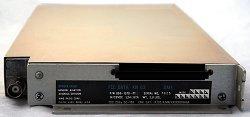 will be closed Friday, July 4th in observance of Independence Day.
will be closed Friday, July 4th in observance of Independence Day.
Regular business hours will resume on Monday, July 7th.
AOG Services are available.
| Part #: | |
|---|---|
| Model: | KN-63 |
| Desc: | DME Transceiver |
| OEM: | BendixKing |
| NSN: | |
|---|---|
| Sched-B: | 8526910010 |
| ECCN: | |
| Cage Code: | 22373 |
 Select part number above to view pricing and availability.
Select part number above to view pricing and availability.
| Price | Condition | Status | More Info | |
|---|---|---|---|---|
| REQUEST | OH OUTRIGHT | REQUEST LEAD TIME |
|

FEATURES
| Size: | 1.18"W x 6.50"H x 11.550"L | Weight: | 2.8 lbs. |
| TSO Compliance: | FAA TSO C66a | RTCA Environmental Categories: | /A2D2/A/MN/XXXXXXZAAAA |
| Maximum Display Range: | 389 nautical miles | Acquisition Sensitivity: | -82 dBm minimum, -87 dBm nominal |
| Range Accuracy: | +-.1 nautical miles or +-14% whichever is greater | Groundspeed Accuracy: | +-1 knot or +-1%, whichever is greater from 0 to 999 knots |
| Time-to-Station: | +-1 minute from 0 to 99 minutes | Search Time: | 1.0 second nominal |
| Memory Time: | 11 to 15 seconds | Maximum Altitude: | 50,000 feet |
| Part Number: | Description: |
|---|---|
| 066-1070-00 | Original production version without harmonic filter; SUPERSEDED BY -01 |
| 066-1070-01 | Current production version with harmonic filter; SUPERSEDES -00 |
NSN: 5826-01-356-1743
| Price | Condition | Status |
|---|---|---|
| $2,250.00 | SV EXCHANGE | 3 IN STOCK |
| $4,250.00 | SV OUTRIGHT | 3 IN STOCK |
| REQUEST | NEW OUTRIGHT | REQUEST LEAD TIME |
| Price | Condition | Status |
|---|---|---|
| REQUEST | OH OUTRIGHT | REQUEST LEAD TIME |
Click on a question below to see the answer. If you have a question about this model that is not answered below, please contact questions@seaerospace.com
In relation to NE (New) parts, many OEMs change their prices and availability without any notice to dealers or the industry. Therefore, through the REQUEST or RFQ indication, we ask that customers contact us for the most accurate price and availability.
In relation to SV & OH parts, the used parts aftermarket in the aviation industry is not an infinite supply. It is a dynamic, constantly changing market that is significantly affected by and susceptible to highs and lows in supply and demand. Therefore, although we attempt to, at times, we are unable to predict the exact moment when an item may be available. Once again, through the REQUEST or RFQ indication on our website, we ask that customers contact us for the most current and accurate price and availability.

KN-65
Until the used market completely dries up, you can still find someone who will sell you a KN-65. The KN-65 may have been a cost effective, reliable unit at one time but unfortunately its time has passed. Most older avionics units have become increasingly challenging to repair as the manufacturers discontinue support and cut off the supply of service parts. Likewise, even if you can find a KN-65 in working condition, it usually has little or no warranty.

KN-63
Instead of continuing to invest your money in obsolete technology and delaying the inevitable, Southeast Aerospace suggests upgrading to the KN-63. Investing in the KN-63 will provide you with a DME that includes warranty and support for many years to come.
Negotiating the exchange price of a unit only limits the allowable repair cap for the core unit. Southeast Aerospace's exchange transactions are based on the return of economically repairable core unit. Once the core is received and evaluated, the core repair cost incurred by SEA cannot exceed 75% of the original exchange price. That is, it cannot cost SEA more than 75% of the original OH/SV exchange price collected from the customer. Therefore, when and if an SEA exchange price is discounted, there is a risk that additional charges may be assessed once the core is returned and evaluated.